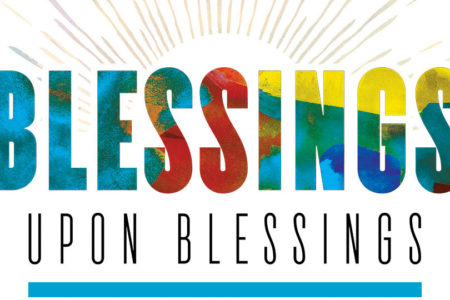Identity Check
The problem of Isaiah 61: Isaiah or Jesus speaking?
Isaiah 61 begins with a problem. Who is the speaker?
The Spirit of the Lord God is upon me; because the Lord hath anointed me to preach good tidings unto the meek; he hath sent me to bind up the brokenhearted, to proclaim liberty to the captives, and the opening of the prison to them that are bound; to proclaim the acceptable year of the Lord (vv. 1–2, KJV).
Ordinarily, readers would assume Isaiah is speaking, which is the position of Jewish scholars. Yet many Christian scholars say the speaker is Jesus. Earl Radmacher, late professor of systematic theology and general editor of Thomas Nelson’s NKJV Study Bible, spoke for many Christian theologians when he wrote,
The Me featured so prominently here is the same Servant as in [Isaiah] 42:1; 49:1; 50:4; 52:13. Several reasons point to this identification: (1) The Servant refers to God as His Master, the Lord (compare 50:4); (2) He has received the Lord’s Spirit (compare 42:1); (3) He brings a word of healing and liberation (compare vv. 1–3 with 42:7; 49:9; 50:4); (4) He proclaims the “year of the Lord” (compare v. 2 with 49:8); (5) He is associated with an everlasting covenant (compare v. 8 with 42:6; 49:8); (6) Jesus Christ inaugurated His ministry by identifying Himself as this Servant (Luke 4:17–21). The passage may also refer to Isaiah, but if so, he is only a pale shadow of Christ. The Lord has anointed: This phrase signifies that the Servant is more than a prophet, since only kings and high priests—with the exception of Elisha (1 Kin. 19:16)—were anointed (45:1).1
However, unlike Isaiah 59:21, which reads, “‘As for Me,’ says the Lord,” Isaiah 61 contains no specific indication that the speaker is not the prophet; and Jesus’ use of verses 1–2 obfuscates the issue further:
And he [Jesus] came to Nazareth, where he had been brought up: and, as his custom was, he went into the synagogue on the sabbath day, and stood up for to read. And there was delivered unto him the book of the prophet Esaias [Isaiah]. And when he had opened the book, he found the place where it was written, The Spirit of the Lord is upon me, because he hath anointed me to preach the gospel to the poor; he hath sent me to heal the brokenhearted, to preach deliverance to the captives, and recovering of sight to the blind, to set at liberty them that are bruised, to preach the acceptable year of the Lord. And he closed the book, and he gave it again to the minister, and sat down. And the eyes of all them that were in the synagogue were fastened on him. And he began to say unto them, This day is this scripture fulfilled in your ears (Lk. 4:16–21, KJV).
Because Jesus declared that His ministry in Nazareth fulfilled this prophecy, many make Him the speaker in Isaiah 61, assigning the words to the Servant of the Lord, as in Isaiah 49:1–7. Unlike Isaiah 49, however, Isaiah 61 nowhere indicates that the Servant of the Lord is speaking (or referenced). Furthermore, Jesus’ ministry was rejected, and people in His hometown tried to throw Him off a cliff (Lk. 4:28–29).
Consequently, this prophecy seems to be an example of the interpretive principle of double fulfillment. Theologian J. Dwight Pentecost stated the principle this way: “Two events, widely separated as to the time of their fulfillment, may be brought together into the scope of one prophecy. This was done because the prophet had a message for his own day as well as for a future time….It was the purpose of God to give the near and far view so that the fulfillment of the one should be the assurance of the fulfillment of the other.”2
It seems best to me to make Isaiah the speaker in Isaiah 61, proclaiming this great “good news” of future blessing for Isaiah’s people. More than 700 years later, Jesus attached another fulfillment that could not have been known apart from His statement in Luke 4.
by Richard D. Emmons
ENDNOTES
- Earl D. Radmacher, ed., The Nelson Study Bible NKJV (Nashville, TN: Thomas Nelson, 1997), 1,210, n Isa. 61.1.
- J. Dwight Pentecost, Things to Come (Grand Rapids, MI: Zondervan, 1964), 46–47.








